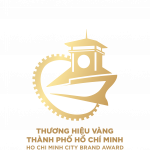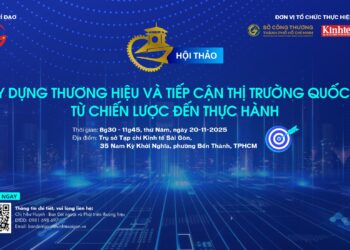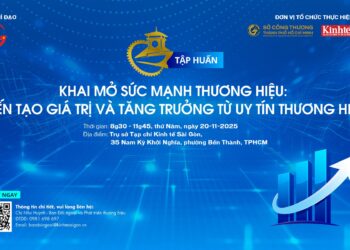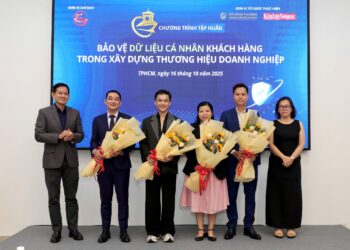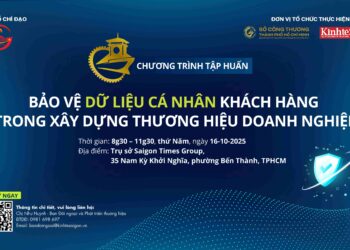Adopting ESG (environmental, social, and governance) practices is a long-term commitment, but small and medium-sized enterprises (SMEs) in Vietnam often face significant hurdles due to limited capital, workforce constraints, and a lack of strategic direction. To address these challenges, many SMEs focus on maximizing available resources, prioritizing key investments, and leveraging their core strengths.
The Ministry of Planning and Investment reports that approximately 4,000 Vietnamese businesses are transitioning to sustainable development models with support from international organizations. However, this represents only a small portion of the overall need, as nearly one million businesses across the country require assistance to embrace green transformation practices.
Turning challenges into advantages
In Ben Tre Province, famously known as the land of coconuts, the journey into green tourism begins at the pier. Each guest is provided with a small notebook, a pencil, and a “net zero passport.” The tour guide explains how to record emissions from each product and activity in the notebook, along with plans to offset them.
As the tide shifts, boats glide through coconut groves and mangrove-lined riverbanks, offering visitors a glimpse into the tranquil rhythm of local life.
The tides here change direction four times a day, with each cycle lasting six hours—rising and falling.
“C2T’s boats harness the strong tidal currents to conserve fuel, which in turn lowers emissions,” said Vo Van Phong, general director of C2T Media Tourism One Member Company Limited.
Upon reaching their destination, guests explore the coconut candy-making village, savor traditional folk music, taste honey, and enjoy refreshing coconut water from various varieties. They also learn about the coconut tree’s resilience amid climate change and saltwater intrusion.
In March 2024, C2T launched the innovative “Net Zero Passport” (NZP), a groundbreaking green tourism initiative in Ben Tre Province. By November, the company won the prestigious Kotler Awards 2024 in marketing, becoming the only travel company from the Mekong Delta to receive this honor. This achievement was not the result of a single year’s effort but the culmination of years of dedication and creativity.
Traditional tours of the Mekong Delta often follow a standard formula: visits to eco-gardens and tourist spots, meals of fried giant gourami or sweet and sour snakehead fish soup, and the purchase of souvenirs before heading home. Seeing the need for unique experiences, Phong sought to diversify the offerings in Ben Tre.
Phong encouraged local garden owners to enhance their spaces by improving fruit gardens, adding dining tables under the trees, and constructing monkey bridges. During family events such as weddings or memorials, C2T invites tourists to join, allowing both foreign visitors and domestic travelers to immerse themselves in the traditions of the Mekong Delta.
In coastal areas, C2T introduced mangrove forest tours. Visitors can walk barefoot on sandbars, fish for mudskippers, trap crabs, grill fish, and pick mangrove fruits for sour soup, offering an authentic and eco-friendly experience.
“Being poor can also be an advantage,” Phong said, reflecting on the journey of implementing ESG (environmental, social, and governance) practices at C2T.
The company initially launched affordable tours to cater to a wide range of tourists while implementing sustainable practices like waste sorting and recycling. Coconut shells from the tours are repurposed into fibers, fuel, or handicrafts at local facilities. Later, solar energy was incorporated to further reduce the carbon footprint. Phong envisions introducing more green OCOP (One Commune, One Product) items at tourist destinations along the NZP tour.
“Currently, the net zero tour mostly attracts group tourists, with the majority being foreign visitors from the Vietravel travel agency,” Phong shared.
Pressure from digital and green transitions
In 2013, Queen Farm Vietnam, officially known as Queen Farm Ecological Agriculture Co., Ltd., was founded in Binh Phuoc Province, marking a major milestone for Nguyen The Tung. Entering the farming industry for the first time, Tung embraced high-tech agricultural practices to build a sustainable future.
The land where the farm now stands was originally a rubber plantation. Years of chemical fertilization had left the soil hardened, dry, and infertile. To restore its productivity, Queen Farm prioritized improving the soil’s pH and nutrient balance. The farm also established its own electrical grid, constructed two water reservoirs, and installed 75 kilometers of automatic irrigation pipes equipped with Israeli technology. All farm operations are now automated and controlled through a mobile app, ensuring efficiency and sustainability.
Queen Farm planted its first durian trees in 2020, a time when durian was far less popular than today. Despite this, Tung committed to a long-term vision, making substantial investments in the farm’s future.
Today, Queen Farm has grown into a large-scale durian plantation in Binh Phuoc, with more than 10,000 trees spanning three varieties: Dona (Monthong), Musang King, and Ri6. In addition to durian, the farm cultivates a diverse range of crops, including Chiang Rai jackfruit, Mica milk fruit, cashews, and bananas, reflecting its dedication to sustainable and diversified farming practices.
Queen Farm is divided into four sections with a total of 30 plots, each meticulously managed using electronic tagging. Every plant at the farm is equipped with an electronic chip, allowing workers and visitors to access detailed information and locate plants with precision. This advanced data repository serves as the foundation of Queen Farm’s ESG efforts and a key asset in its operations.
Despite the farm’s strides in digital transformation, Nguyen The Tung acknowledges the mounting challenges of sustainability. “While digital transformation is still ongoing, the pressure from sustainability is already significant,” he noted. However, the farm’s early efforts in soil restoration and its adoption of organic farming practices have helped mitigate some of this burden.
To further its green agenda, Queen Farm began sourcing certified plant seedlings and agricultural supplies, adopting a more scientific management system, and enhancing staff training programs. Waste management is rigorously enforced, with household and production by-products sorted into designated bins. Organic waste is recycled into fertilizer, contributing to the farm’s commitment to sustainability.
Digitalization has significantly boosted efficiency in irrigation and fertilization, transforming the operations of the 55-hectare farm. Despite its scale, Queen Farm operates with just 13 employees, including two agricultural engineers.
Challenges in green transition
A survey of 2,734 Vietnamese businesses conducted by the Private Sector Development Research Board (IV Board), under the Prime Minister’s Advisory Council for Administrative Procedure Reform, revealed significant obstacles in the shift to sustainable practices. The survey found that 64% of businesses are not fully prepared for the green transition, with over 50% deeming green transformation “not yet essential.” The key challenges identified were access to capital, a skilled workforce, and practical, tailored solutions.
Given these challenges, businesses must often rely on their own resources to initiate green practices before seeking external support. ESG investment is a long-term commitment requiring sustained effort and planning.
Phuc Sinh Dak Nong Corp. serves as an example of how external funding can accelerate the transition. By the end of 2024, the company received notification of a US$15 million grant from a European ESG fund to support its sustainability efforts. Previously, Phuc Sinh secured a US$25 million grant from the Dutch Fund for Climate and Development (DFCD) and a non-refundable grant of €431,250 for sustainable coffee farming projects. For the latter, Phuc Sinh contributed 25% of the project’s cost, demonstrating its commitment to shared investment in sustainable development.
Phan Minh Thong, founder and chairman of Phuc Sinh, told The Saigon Times, “This is the result of Phuc Sinh’s early investment in ESG. Since 2010, Phuc Sinh has spent VND800 million to hire ESG experts for sustainability consulting.”
Both Queen Farm and C2T, despite being small businesses, have managed to overcome obstacles through the dedication of their founders and leaders. Committed to learning, passionate about their work, and resolute in their vision of long-term, sustainable practices that respect nature, these leaders have been instrumental in their companies’ success.
The ESG journey starts with the mindset of leadership, as business strategies must align with sustainable development goals. Nguyen Cong Minh Bao, co-founder of Green Transition Consulting & Training, said, “It is a top-down strategy, embedded within the company’s growth plan.”
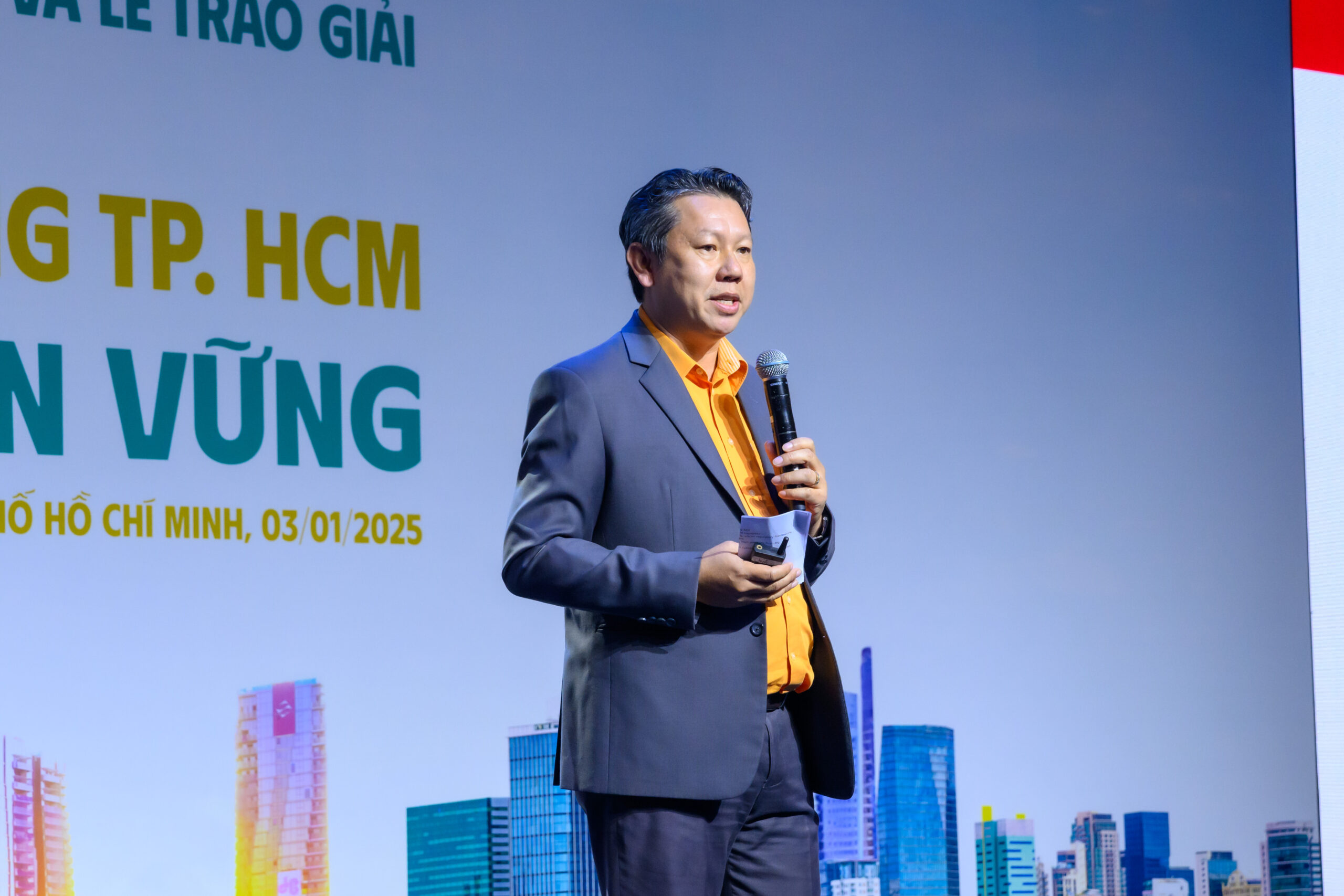
Nguyen Cong Minh Bao, co-founder of Green Transition Consulting & Training, shares insights on the green transition journey of small and medium enterprises.
The implementation of ESG should also begin with the workers on the factory floor, who are directly involved in production. “It is the machine operators who truly understand how changes in processes or small improvements can make equipment and machinery more energy-efficient,” said Truong Anh Hai, vice president of Health, Safety, Environment & Community at NS BlueScope Vietnam. The company has invested US$3 million in a heat recovery system for the drying kiln. “The amount may seem large, but within 3 to 5 years, we had recouped the investment. The following years represent the net profit from this investment,” said Hai.
Implementing ESG practices requires the involvement of the entire organization, not just one individual or department. According to Truong Anh Hai, vice president of Health, Safety, Environment & Community at NS BlueScope Vietnam, this collective approach fosters greater cohesion and reduces employee turnover. “Our turnover rate stands at around 7-10%, well below the industry average of over 15%. A lower turnover rate translates to higher productivity, reduced training costs, and more efficient use of resources,” Hai explained.
Both Queen Farm and C2T emphasize the importance of “green people” in advancing their ESG efforts, recognizing the valuable knowledge that visitors and experienced farmers bring to the table.
“There are farmers aged 60 to 70 who can tell by looking at a plant’s leaves whether it was grown with organic or chemical fertilizers. They can also identify by the trunk if the plant has issues such as yellowing leaves or root rot. This type of ESG knowledge is crucial for us,” said the founder of Queen Farm in an interview with The Saigon Times.
